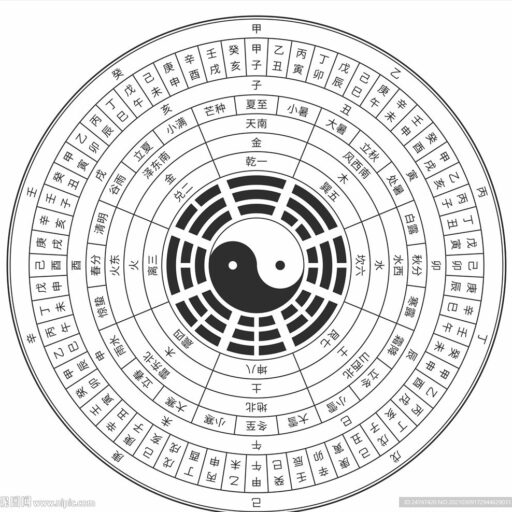
As researchers, at least once in our lives we have missed an important deadline, and while feeling stressed, wondered how we could have planned our tasks better and managed our time well, isn’t it? Hence, as we do our research, time management becomes one of the most essential skills to possess.
Efficient time management for researchers isn’t as easy as you’d think and the importance of time management in research is almost always undervalued. A researcher’s day is usually packed with tasks including, but not limited to, working on manuscripts, preparing presentations, conducting studies, teaching, and mentoring students to name a few. While researchers juggle these research-related tasks, they also manage logistics and admin tasks. Therefore time management in research often becomes a sinking ship. Moreover, unexpected factors lead to delays and researchers are left with decreased productivity and much less time than they imagine.
Therefore, time management for researchers is important to have a smoother and happier research journey. It would not be an exaggeration to say that for you, the researcher, time management is the key to success.
We would like to share with you some tried and tested time management strategies for research productivity that many of your peers have applied to their lives successfully.
1. It’s okay to say “no”: One of the least discussed tips on time management for researchers is that as a researcher, you’ll often have to prioritize your tasks, and at times turn down tasks or requests if they won’t help you achieve your goals. When you have too much on your plate, ask yourself if you can postpone any of the tasks and concentrate on high impact activities. For example, you may have to choose between attending a conference on a related field and using that time to work on your manuscript.
2. Embrace digital tools for researchers: Wouldn’t you agree that making plans is often the easier part and staying on track is challenging? With the increased availability of digital tools for researchers, planning and organizing has become much easier. You can use online project management and planning tools (such as Asana, Trello, and ProofHub) to manage your tasks in a structured way. Rest assured, these tools will bring you closer to your goal of time management in research.
But that is not all! As a researcher, staying abreast of goings-on in your subject area is crucial for you. AI-powered digital tools for researchers like R Discovery can help you save 50% of reading time by providing recommended articles in the most personalized way based on topics and subject area that you prefer. You can access the papers most relevant to you from over 90 million papers available on R Discovery. So digital tools for researchers like R Discovery can be great assistants in helping you manage your time more effectively.
3. Multitask to quicken the work pace: One of the popular time management strategies for research productivity is to work on multiple tasks without spreading yourself too thin. Multitasking, when planned well, can help you save time and make consistent progress. For instance, you can start writing your Methods section right as you are conducting your experiment. This will help improve time management for researchers in two ways: you won’t have to wait to complete your study to write your paper, and you’ll be able to complete the task faster as you’ll clearly remember all the details.
4. Set realistic deadlines: If your goal is to eat an entire cake by yourself, it would be pretty tough to do so in one bite, isn’t it? It’s advisable to create smaller milestones when trying to accomplish a bigger goal or overcome a challenge. One of the most important tips for time management in research would be to split the goal into multiple tasks, consider factors that may pose challenges, and set attainable timelines accordingly.
Keeping a tight schedule may seem a good idea at the outset but eventually can lead to counter-productivity, loss of motivation, and early burnout. So one way to optimize time management for researchers to ensure you complete tasks within timelines is by keeping aside some buffer time for each task. You may benefit from this blog by Dr. Raul Pacheco-Vega, an Assistant Professor at a university in Mexico, where he shares how changing his perspective of goal setting helped him create feasible goals for himself.
5. Maintain a to-do list: Another of our important tips for time management in research is to make it a habit to plan your day by jotting down priority tasks. You could do this first thing in the morning or at the end of your day (if you want to plan your next day). Having a clear picture of what your priorities for the day are can help you plan your day better and complete your tasks more efficiently. And you’re less likely to miss any deadline. Also, striking off tasks on your to-do list each day is satisfying and motivating. Use one of the digital tools for researchers mentioned above and try it yourself!
6. Complete high-priority tasks first: Often called the “eat a frog” technique of time management for researchers and non-academics, this can be extremely effective is done properly. Many researchers find it useful to block time at the beginning of their day for tasks that need more time, energy, and concentration. When a major chunk of your daily tasks is ticked off at the start of your day, it gives you a sense of accomplishment and keep you motivated for the entire day.
“When you begin your day by reading messages, you are prioritizing other people’s requests before taking action towards your long-term goals… To make consistent progress, begin your day by doing the highest priority task,” says Dora Farkas, PhD from MIT and founder of the Finish Your Thesis Academy in her blogpost on time management for researchers.
7. Eliminate disturbances: Block some time of your day to focus on your work and get things done. Here are a few time management strategies for research productivity that will help you stay focused.
- Turn off push notifications on your phone.
- Turn on the ‘do not disturb’ mode on your phone.
- Avoid the temptation to read and respond to any emails.
8. Avoid delaying tasks: One of the most important time management tips for and researchers – Don’t slow down your journey towards your publication goal by procrastinating. Most of us avoid tasks that we don’t like or find challenging. However, delaying even one task can wreak havoc on your deadlines. An amazing trick by Agata, a PhD student in the University of Nottingham to avoid procrastination is to have plans after work. It helps improve time management for researchers by pushing you to finish your work on time, which increases your productivity significantly.
9. Don’t precrastinate: That’s not a typo! We’ve all been guilty of precrastination – the act of picking lesser important tasks to avoid doing an important task that we find challenging or are uninterested in. So, when talking about time management for researchers, it’s important to resist going down that path; look at the bigger picture – your publication goal. Stay motivated and remember why you started. For example, responding to emails that are not urgent instead of working on your literature review report using literature review tools is an act of precrastination.
10. Take guilt-free breaks: Value the importance of time management in research – but that does not mean you need to overburden yourself. That 10-minute break to brew yourself a cup of coffee is not a waste of time! It is a fact that taking breaks after focused sessions of one or two hours can boost your productivity and is a great way to improve time management for researchers. Use these breaks for activities that you like and will help you relax. From taking a half an hour walk, meditating for a couple of minutes, or enjoying a cup of coffee in your balcony, it will help you rejuvenate for another focused session. Larger breaks are equally important, and many often leave this out when listing time management tips for researchers. When you spend time with friends, family, and with oneself, it brings out the best in you at work, so make sure to include breaks in your schedule.
To sum up our list of tips on time management for researchers, while it is important to have a plan, it is best not to set it in stone. Time management for scientists and researchers starts with maintaining a balance between the daily activities. It is okay to relax or have a less productive day once in a while. To get the most out of your day, take a hard look at your goals, plan according to what works best for you (use digital tools for researchers to simplify this), and revise your plan as and when required. Stay focused on your goals but keep some room to mold your plan as required. Hopefully, as you use these time management strategies for research, productivity and efficiency are only going to get better.
Let’s close by reiterating why time management for researchers is an important skill to have
- Prevents last-minute stress
- Increases your productivity exponentially
- Avoids delays in submissions
- Improves your work efficiency
- Keeps tasks organized
- Reduces chances of missing important information or tasks
研究中的时间管理:提高生产力的 10 种策略
作为研究人员,我们一生中至少有一次错过了一个重要的截止日期,在感到压力的同时,想知道我们如何才能更好地计划我们的任务并很好地管理我们的时间,不是吗?因此,当我们进行研究时,时间管理成为最重要的技能之一。
对于研究人员来说,有效的时间管理并不像你想象的那么容易,时间管理在研究中的重要性几乎总是被低估。研究人员的一天通常充满了任务,包括但不限于撰写手稿、准备演示文稿、进行研究、教学和指导学生等等。在研究人员处理这些与研究相关的任务的同时,他们还管理后勤和管理任务。因此,研究中的时间管理往往成为一艘正在下沉的船。此外,意想不到的因素会导致延误,研究人员的生产力下降,时间比他们想象的要少得多。
因此,研究人员的时间管理对于拥有更顺利、更快乐的研究之旅非常重要。毫不夸张地说,对于研究人员来说,时间管理是成功的关键。
我们想与您分享一些久经考验的时间管理策略,以提高您的许多同行已经成功地应用于他们的生活中。
1. 说“不”是可以的:对于研究人员来说,关于时间管理的讨论最少的技巧之一是,作为一名研究人员,你经常必须优先考虑你的任务,如果任务或请求不能帮助你实现目标,有时会拒绝它们。当你的盘子里有太多东西时,问问自己是否可以推迟任何任务,专注于高影响力的活动。例如,您可能必须在参加相关领域的会议和利用这段时间处理您的手稿之间进行选择。
2. 为研究人员采用数字工具:您是否不同意制定计划通常是更容易的部分,而保持正轨具有挑战性?随着研究人员使用数字工具的增多,规划和组织变得更加容易。您可以使用在线项目管理和规划工具(例如Asana,Trello和ProofHub)以结构化的方式管理您的任务。请放心,这些工具将使您更接近研究时间管理的目标。
但这还不是全部!作为一名研究人员,及时了解您所在学科领域的最新动态对您至关重要。面向研究人员的 AI 驱动的数字工具(如 R Discovery)可以根据您喜欢的主题和主题领域以最个性化的方式提供推荐文章,从而帮助您节省 50% 的阅读时间。你可以从 R Discovery 上提供的 90 多万篇论文中访问与你最相关的论文。因此,像R Discovery这样的研究人员的数字工具可以成为帮助你更有效地管理时间的好助手。
3. 多任务以加快工作节奏:研究生产力的流行时间管理策略之一是在不分散自己的情况下完成多项任务。如果计划得当,多任务处理可以帮助您节省时间并取得一致的进展。例如,您可以在进行实验时立即开始编写方法部分。这将以两种方式帮助改善研究人员的时间管理:您不必等待完成研究来撰写论文,并且您将能够更快地完成任务,因为您会清楚地记住所有细节。
4.设定切合实际的最后期限:如果您的目标是自己吃掉整个蛋糕,那么一口就很难做到,不是吗?在尝试实现更大的目标或克服挑战时,建议创建较小的里程碑。研究中时间管理最重要的技巧之一是将目标拆分为多个任务,考虑可能构成挑战的因素,并相应地设定可实现的时间表。
一开始保持紧凑的时间表似乎是个好主意,但最终会导致适得其反、失去动力和过早倦怠。因此,优化研究人员时间管理以确保您在时间表内完成任务的一种方法是为每个任务留出一些缓冲时间。您可能会从墨西哥一所大学的助理教授劳尔·帕切科-维加博士的博客中受益,他在博客中分享了改变目标设定的观点如何帮助他为自己创造可行的目标。
5. 维护待办事项清单:我们在研究中进行时间管理的另一个重要技巧是养成通过记下优先任务来计划一天的习惯。你可以在早上或一天结束时做第一件事(如果你想计划第二天)。清楚地了解您当天的优先事项可以帮助您更好地计划一天并更有效地完成任务。而且您不太可能错过任何截止日期。此外,每天在待办事项清单上完成任务是令人满意和激励的。使用上面提到的研究人员的数字工具之一,自己尝试一下!

6.首先完成高优先级的任务:通常被称为“吃青蛙”的时间管理技术,对于研究人员和非学者来说,这种技术可以非常有效地完成。许多研究人员发现,在一天开始时为需要更多时间、精力和注意力的任务留出时间很有用。当你的日常任务的主要部分在一天开始时被勾选时,它会给你一种成就感,让你一整天都有动力。
“当你通过阅读信息开始新的一天时,你会优先考虑其他人的要求,然后再朝着你的长期目标采取行动……为了取得持续的进步,从做最优先的任务开始新的一天,“麻省理工学院博士、完成论文学院创始人Dora Farkas在她关于研究人员时间管理的博客文章中说。
7.消除干扰:在一天中抽出一些时间专注于工作并完成工作。以下是一些提高研究生产力的时间管理策略,可帮助您保持专注。
- 关闭手机上的推送通知。
- 打开手机上的“请勿打扰”模式。
- 避免阅读和回复任何电子邮件的诱惑。
8. 避免延迟任务:对于研究人员来说,最重要的时间管理技巧之一——不要因为拖延而放慢你实现出版目标的旅程。我们大多数人都避免我们不喜欢或觉得具有挑战性的任务。但是,即使推迟一项任务也会对您的截止日期造成严重破坏。诺丁汉大学(University of Nottingham)的博士生阿加塔(Agata)为了避免拖延症,一个惊人的技巧是下班后有计划。它通过推动您按时完成工作来帮助改善研究人员的时间管理,从而显着提高您的工作效率。
9.不要拖延:这不是错字!我们都犯过拖延罪——选择不太重要的任务来避免做我们认为具有挑战性或不感兴趣的重要任务的行为。因此,在谈论研究人员的时间管理时,重要的是要抵制走这条路;放眼大局——您的出版目标。保持动力,记住你为什么开始。例如,回复不紧急的电子邮件,而不是使用文献综述工具处理文献综述报告,这是一种拖延行为。
10. 无负罪感的休息时间:重视时间管理在研究中的重要性——但这并不意味着你需要让自己负担过重。10分钟的休息时间给自己冲一杯咖啡不是浪费时间!事实上,在一两个小时的集中会议后休息可以提高您的工作效率,并且是改善研究人员时间管理的好方法。将这些休息时间用于您喜欢的活动,并将帮助您放松。从步行半小时,冥想几分钟,或在阳台上享用一杯咖啡,它将帮助您恢复活力,进行另一次专注的会议。较大的休息时间同样重要,许多人在为研究人员列出时间管理技巧时经常忽略这一点。当你花时间与朋友、家人和自己在一起时,它会让你在工作中发挥出最好的一面,所以一定要在你的日程安排中包括休息时间。
总结一下我们为研究人员提供的时间管理技巧清单,虽然制定计划很重要,但最好不要一成不变。科学家和研究人员的时间管理始于在日常活动之间保持平衡。偶尔放松或降低一天的效率是可以的。为了充分利用您的一天,请仔细审视您的目标,根据最适合您的计划(使用研究人员的数字工具来简化这一点),并在需要时修改您的计划。专注于您的目标,但保留一些空间来根据需要制定您的计划。希望当你使用这些时间管理策略进行研究时,生产力和效率只会变得更好。
最后,让我们重申一下为什么研究人员的时间管理是一项重要的技能。
- 防止最后一刻的压力
- 成倍地提高您的工作效率
- 避免提交延迟
- 提高您的工作效率
- 保持任务井井有条
- 减少错过重要信息或任务的机会
